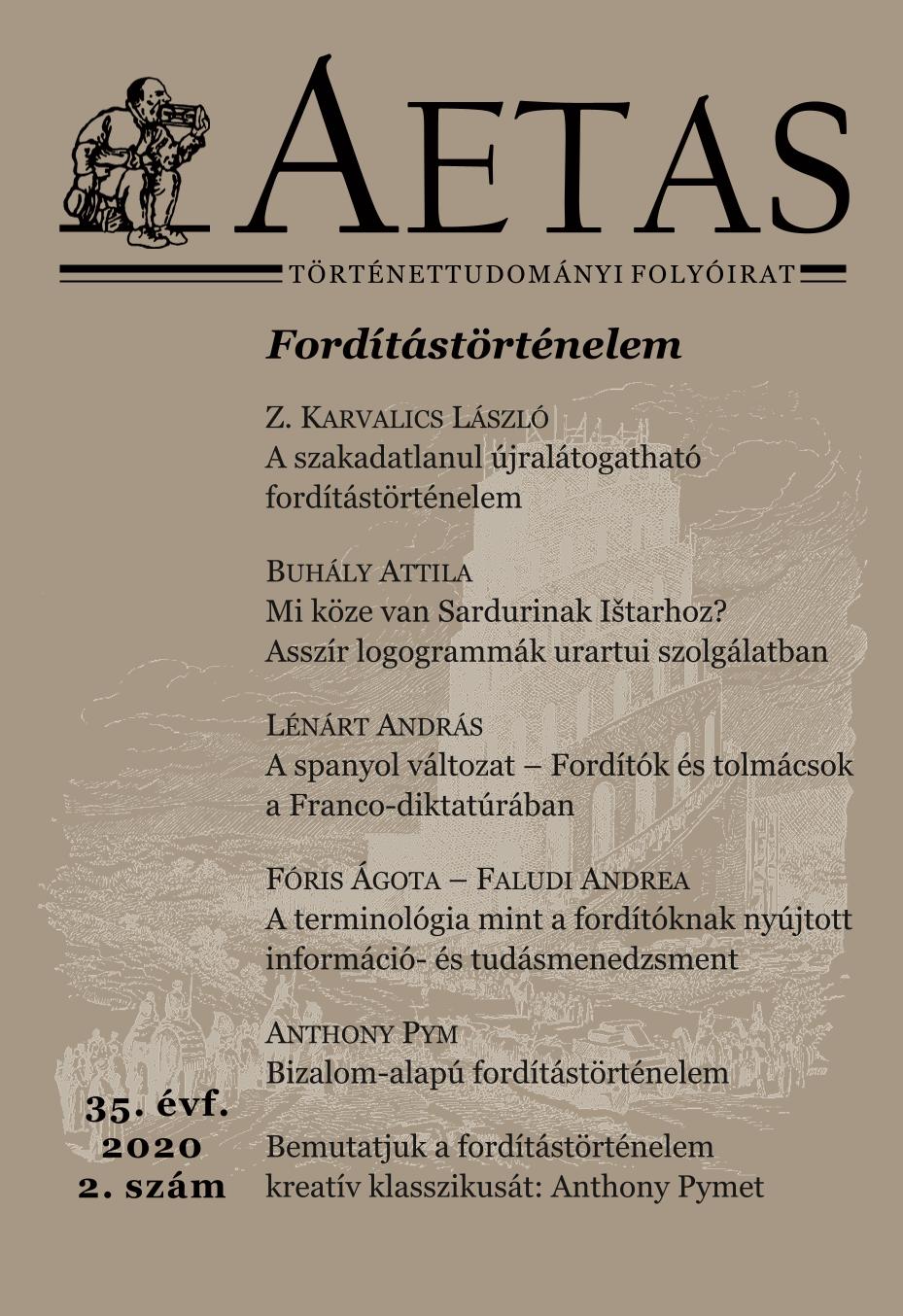A terminológia mint a fordítóknak nyújtott információ- és tudásmenedzsment. Történeti szempontok
Terminology as information and knowledge management for translators – historical aspects
Author(s): Ágota Fóris, Andrea FaludiSubject(s): Cultural history, Comparative history
Published by: AETAS Könyv- és Lapkiadó Egyesület
Summary/Abstract: The aim of this study is to present terminology as an information and knowledge management for translators from historical aspects. Several areas can be classified as subsets of information history, e.g. library science, translation, and the fields of terminology, standardization and technical documentation. Terminologists can be regarded as information specialists who provide translators with a special information service: collection, classification, and rendering terms into databases. An important step of international unification processes is standardization, in which terminology is attributed a prominent role. The “father” of terminological standardization was the Austrian engineer Eugen Wüster, whose doctoral dissertation, published in 1931, initiated the process of terminological standardization. From historical point of view, the emergence of terminology as information and knowledge management for translators can be linked to the works of Eugen Wüster. In Hungary, terminological work for translation primarily takes place in translation bureaus, so the information and knowledge management works for translators is provided by these agencies. The most important information management tools to support translation activity are the terminology databases. Such databases were launched as early as the second half of the 20th century, however, public online terminology databases only became available from the mid-1990s, and even more so from the 2000s.
Journal: AETAS - Történettudományi folyóirat
- Issue Year: 2020
- Issue No: 2
- Page Range: 37-48
- Page Count: 12
- Language: Hungarian

